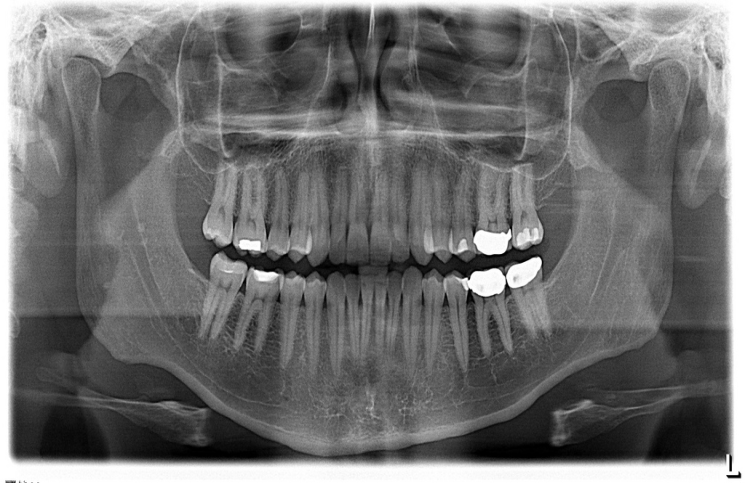This oral health problem is something that very few people consider – until their dentist utters those 4 terrifying words “You Have Gum Disease!”
We’re taught to brush and floss daily, and to visit the dentist twice per year to prevent cavities. If we do those things, everything will be fine, right?
Not entirely…
Diseases that affect the gums and surrounding tissue are different from cavities, which are microscopic (or sometimes larger) holes that form in the tooth itself. However, both cavities and gum disease result from out-of-control bacteria, lack of essential vitamins and minerals in the diet, and using tobacco products including chewing tobacco and cigarettes.
Gum disease starts silently. Once the beginning stages begin, mild irritation can quickly lead to a full blown dental health crisis in your mouth!
What Gum Disease is
1. Gingivitis: All gum disease starts with gingivitis. It’s caused by uncontrolled plaque turning into tarter at, and slightly below, the gumline. This is a mild condition that only affects the gums, not the teeth, and is easily identified by examining the condition in the mirror regularly. Healthy gums are a pink, or slightly off-pink color. Once gingivitis sets in, the gums will turn red due to inflammation and infection.
2. Periodontitis: After a period of uncontrolled gingivitis, the plaque and tarter work their way farther below the gumline, spreading infection and decay to the bones and supportive tissues of your teeth and jawline that aren’t visible without a dental xray. At this stage tooth pain, sensitivity, loose teeth, and frequent occurences of bleeding during brushing are very common.
Once either stage of gum disease begins, you’ll definitely need help from your dentist and or hygienist.
If professional intervention happens before Periodontitis sets in, the chance of tooth loss is very slim. Those suffering from Periodontist are very likely to experience tooth loss.
Main Causes of Gum Diseases
• Poor Oral Health: improper brushing or not brushing at all, failing to floss, and not visiting your dentist at least once per year. Even with a poor diet, regular brushing and dental care can virtually eliminate your chances of getting a gum disease in the first place.
• Tobacco: tobacco products are extremely acidic, breaking down tooth enamel, halting saliva production, and causing the gums to pull away from the teeth – allowing tarter and bacteria to sneak below the gumline. While regular dental care helps, people who abuse tobacco products or smoke illegal drugs may likely develop at least a mild form of gingivitis due to destructive effects that smoke has on gum tissue.
• Immune Problems: our immune system is responsible for killing germs and other foreign invaders in our body. Diabetes, AIDs, cancers, and uncontrolled stress levels cause bacterial infections and thus, gum disease.
What to Look for at Home
• Red swollen or bleeding gums
• Receding gumline
• Visible puss in the mouth
• Loose teeth
• Sudden or gradual onset of uncontrolled bad-breath symptoms
How to Prevent Gum Disease From Taking Over
Regular Brushing:
At the very least, make sure you brush your teeth a minimum twice daily, though preferably after each meal or sugar-containing beverage consumed.
Flossing:
Plenty of people brush regularly, but their teeth only get flossed when they go to the dentist for a cleaning. Tarter forms in the areas between your teeth where the brush doesn’t hit, building and spreading below the gumline.
Dental Cleanings and Checkups:
Dentists recommend seeing them twice per year for maximum tooth and gum disease prevention. If your budget’s tight, aim to see them every 12 months. There are plenty of clinics which offer discounted care for low-income people and families.
Kill the Tobacco:
Brushing, flossing, and regular trips to the dentist all work in your favor. Still, as mentioned already, all tobacco products will lead to gum problems at some point, even with the best dental care. The more you smoke the worse it is for your teeth and gums.
Note About Sugar:
Cutting back on your sugar intake will not only improve your oral health, but your all-round health in general! Brushing after each meal, flossing, and seeing your dentist often may allow your gums to escape the clutches of gum disease if you consume lots of sugar, but eating it in excess can also lead to diabetes and immune disfunction from the stress it causes our metabolism; both of which are major contributing factors in the formation of gum disease.
Conclusion
The battle against this and other oral health problems is life-long. Any period of laziness in your oral care routine, including visits to the dentist, will quickly lead to gingivitis. Make sure you follow the tips on this page and monitor your gum health by regular self-examination at home. Prevention and early intervention are the keys to avoiding periodontitis, and eventual tooth decay and tooth loss.




